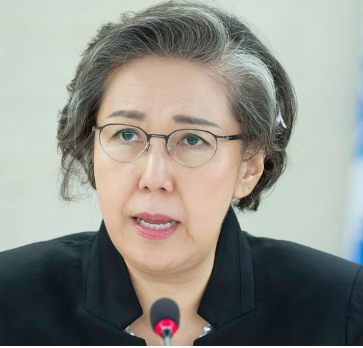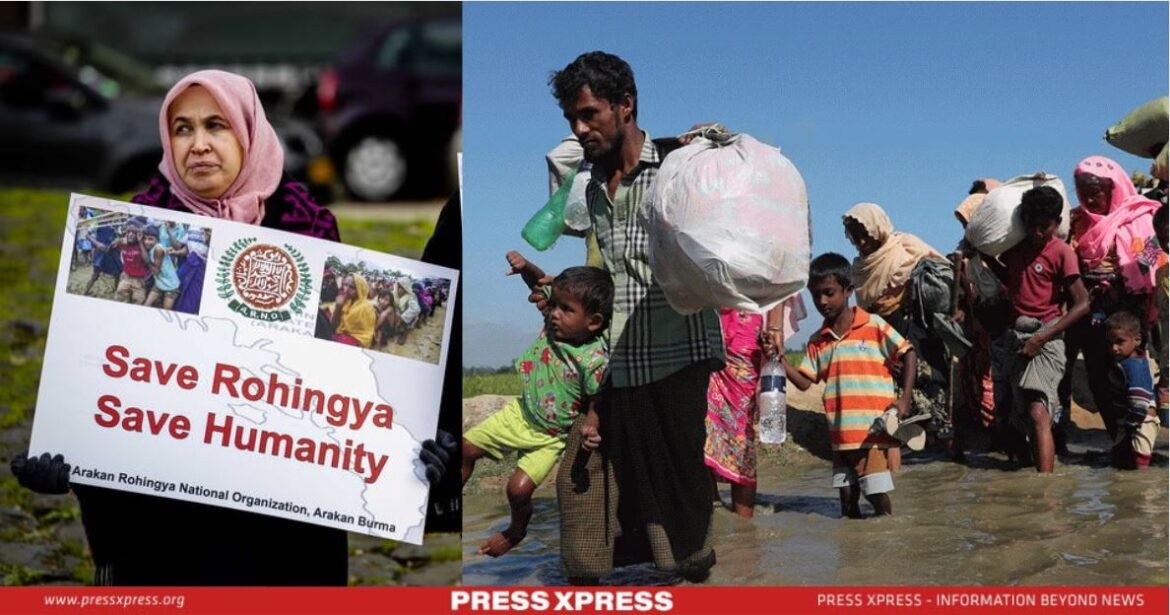The Rohingya, a Muslim minority in Myanmar, have endured severe persecution at the hands of the Myanmar Junta, which launched a brutal crackdown on the minority in 2017. The brutal crackdown forced nearly a million Rohingya to seek refuge in Bangladesh. Brutal acts of persecution, including mass murder, gang rape, beatings, and arson have caused this fear-induced forced migration. This event has been widely recognized as an enforced displacement.
You can also read: US Committed to Supporting Rohingya Refugees Ongoing Crisis

Figure 1The Scale of the Rohingya Genocide, NOTE: The figures are from 2018 and are likely higher as information is scarce.
Argentina has stepped into the fray, seeking justice through its legal system. Human rights groups have applauded this move, though obstacles persist. The UN and other international bodies have meticulously documented the grave human rights abuses against the Rohingya. They continue to demand accountability and protection for the Rohingya people, who face ongoing threats both in Myanmar and as refugees.
International Bodies Confirm Acts of Genocide

“Let us be clear: International crimes were committed in Myanmar. Rohingya Muslims have been killed, tortured, raped, burned alive and humiliated solely because of who they are”
– Adama Dieng, former UN Special Adviser on the Prevention of Genocide

Due to the 2017 crackdown, nearly a million Rohingya refugees sought safety by fleeing to Bangladesh (Figure 2). In March 2018, the United Nations genocide prevention advisor reported that evidence suggested Myanmar’s government aimed to expel Rohingya Muslims from Rakhine State, and potentially eradicate them, which, could be considered genocide.
The international community, including the United Nations, international press, and human rights organizations, have meticulously documented multiple atrocities, labeling them as genocide and crimes against humanity. Associated Press found evidence of mass graves. A senior United Nations official examining Myanmar’s crackdown on the Rohingya believes that it may be classified as genocide:
“I am becoming more convinced that the crimes committed following 9 October 2016 and 25 August 2017 bear the hallmarks of genocide and call in the strongest terms for accountability”
– Yanghee Lee, Special Rapporteur on human rights in Myanmar, while speaking to the UN’s Human Rights Council in Geneva, March 2018

Case Filed in Argentina, Not ICC
Argentina’s Federal Criminal Court accepted the Rohingya case in 2021, marking the first universal jurisdiction case for the Rohingya persecution. This case, initiated by the Burmese Rohingya Organization UK (BROUK) in 2010, aims to hold Myanmar’s leaders accountable for their actions. The principle of universal jurisdiction, enshrined in Argentina’s constitution, empowers the court to try crimes committed beyond its borders.
This approach differs from the ongoing ICC investigation into the Myanmar military’s crimes. Argentina leverages its legal framework and historical commitment to human rights, while the ICC, based in The Hague, focuses on crimes that cross international borders.
This two-pronged strategy aims to intensify pressure on Myanmar. The ICC addresses broader international crimes, while Argentina targets specific perpetrators, adding weight to global demands for justice.
Symbolic Move or Real Impact?
Argentina’s case against Myanmar’s leaders serves as both a symbolic gesture and a potentially impactful action. The symbolic value lies in asserting universal jurisdiction, demonstrating that genocide can be prosecuted globally. This sends a powerful message against impunity for such crimes.
The real impact of this case is substantial for several reasons. Firstly, it offers hope to the Rohingya victims, who have endured ceaseless persecution. Survivors have testified in Argentine courts, bringing their suffering to light. Secondly, it exerts pressure on Myanmar’s military leaders. International arrest warrants can restrict their travel and access to resources, increasing their isolation.
Is Myanmar Growing More Isolated?
Myanmar’s junta finds itself increasingly isolated on the international stage. Since the military coup in February 2021, the regime has faced significant resistance from within and growing international condemnation. As the death toll increased (Figure 4); this isolation intensified while the junta struggles to maintain control over the country.
The international community, including the United Nations and various human rights organizations, has consistently condemned the junta’s actions. Calls for accountability and justice, such as bringing Myanmar’s leaders to the International Criminal Court, have grown louder.
Additionally, traditional allies like China are reconsidering their support, engaging with opposition groups, and reducing military assistance.

Internally, the junta’s control has weakened considerably. It has lost significant territory to resistance groups and ethnic armed organizations. This internal strife has further isolated the regime, making it difficult for them to maintain their grip on power.

Economically, Myanmar suffers greatly (Figure 6). International sanctions and a lack of foreign investment have crippled the economy; with dependence on China increasing. Humanitarian crises have worsened, with millions of people in need of aid, exacerbating the junta’s struggles.
Despite these pressures, the junta remains defiant. They have shown no willingness to cooperate with international demands, including those from ASEAN and other regional bodies. The regime’s strategy has been to suppress dissent violently, which only increases its isolation.
Future Impact
The future impact of Argentina’s case against Myanmar’s leaders could prove far-reaching. If the court issues international arrest warrants, it would increase pressure on the junta. This could restrict their travel and limit access to global resources.
A successful prosecution could inspire similar cases in other countries, reinforcing the principle of universal jurisdiction. This would send a strong global message against impunity for genocide and crimes against humanity.
Conclusion
Argentina’s case against Myanmar’s leaders for the Rohingya genocide marks a critical move. It highlights the global commitment to accountability for crimes against humanity. This case carries symbolic weight, yet it holds the potential for real impact by pressuring Myanmar’s regime and highlighting the plight of the Rohingya. International support remains crucial to sustain these efforts and achieve justice. The world watches as Argentina leads this significant step towards holding perpetrators accountable.
However, enforcement remains a challenge. Myanmar’s leaders might ignore international warrants, and cooperation from Myanmar’s neighbors is uncertain. The ongoing efforts by international bodies like the ICC and ICJ complement Argentina’s case, increasing the chances of accountability.


